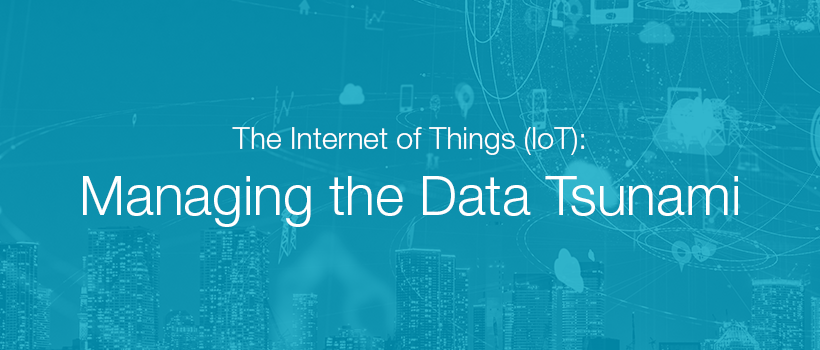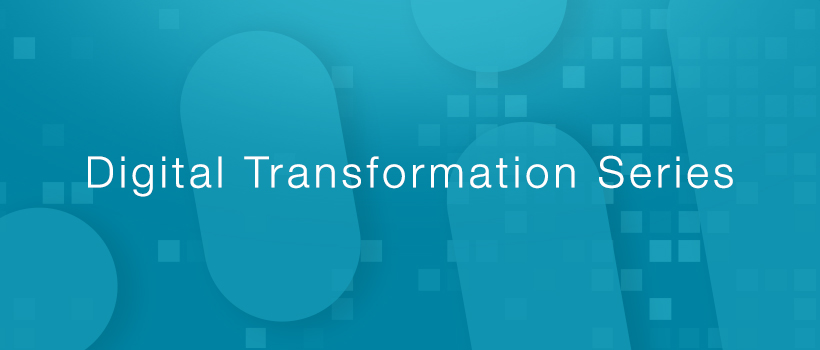Continued adoption of IoT technologies will pose both opportunities and challenges. A tsunami of new data streams offers enormous opportunities in guiding digital transformation strategies across many industries. Yet along that path there will be numerous obstacles to overcome – chiefly related to data privacy and governance.
The Internet-of-Things has the potential to transform a range of industries – from automotive and agriculture through to healthcare, home appliances and insurance services. Yet at the heart of all of these business transformations lies a common thread: the importance of data.
As more ‘things’ become internet-enabled, they will invariably collect more data, which will need to be aggregated, stored and analysed. And this proliferation of data streams has only just begun to gain traction.
The evolution of new technologies will only serve to accelerate momentum. Advancements in sensor equipment will enable more data to be gathered with greater accuracy, granularity and at lower cost (both financially and in terms of power consumption). Complementing that trend will be new networking technologies – including the roll out of 5g networks and continued improvements in satellite communications – which will provide the necessary bandwidth and coverage required to aggregate information from the growing army of end-point sensors, wherever they are located. Continued evolution of chipsets, cloud architectures and AI/ML algorithms will provide evermore scalable storage and computer required to analyse that data.
Monetising Data Assets
Any organisation engaged in IoT will be amassing datasets that have the potential to become extremely valuable. But exactly how that data is utilized (and potentially monetised) will differ across sectors.
Internet-enabled ‘things’ cover a very wide range of use cases. They include retail products such as wearable devices, medical implants, cars, doorbells, thermostats or kitchen appliances; corporate devices covering everything from electricity meters, weather sensors, close circuit television and fleet tracking devices, through to agricultural sensors, commercial drones and industrial machinery; or they can be owned by governments looking to promote smarter cities, enhance security surveillance or better monitor and manage infrastructure.
The way that organisations utilise IoT data will therefore vary significantly. Some might see the data as an opportunity to optimise their operations. For example, an electricity company can utilise data gathered from IoT-enabled smart meters as well as weather sensors to better model and predict energy consumption patterns, which in turn can help optimise pricing and capacity planning strategies.
Other organisations could see data gathered by IoT devices become an integral part of their product/service offering. For example, data collected by wearable health-tracking devices has become of increasing importance and value to providers of life and medical insurance. It has even prompted one long-established US operator to announce a landmark strategic decision that it will only sell interactive life insurance policies going forward.[1]
Privacy concerns: more data, more problems?
The diverse nature of IoT use cases will trigger varying levels of privacy concerns. Few would question the merits of an industrial manufacturer using data collected by IoT sensors to safeguard the health and safety of employees. Nor that of governments measuring physical stresses on bridges and buildings to safeguard their structural integrity.
Yet there are countless other use cases where ethical dilemmas will present themselves. Although one can’t generalize entirely, it is predominantly retail and government uses of IoT that will potentially face the strictest scrutiny.
So-called ‘killer apps’ in the IoT space are still emerging. However, in recent years there are some that have been gaining impressive traction. Smart speakers and digital assistants from leading tech giants (Amazon Echo/Alexa, Google Home, Siri and Cortana) are becoming increasingly ubiquitous. Equally, the ‘Ring’ and ‘Nest’ series of products, owned by Amazon and Alphabet respectively, are another set of propositions experiencing rapid adoption.
As consumers readily accept more internet-enabled devices into their homes, they not only welcome novel benefits but also new concerns regarding the data collected by those devices. In response to those concerns, regulations such as the General Data Protection Regulation in Europe and the California Consumer Protection Act are already enshrining the rights of individuals over their data. Yet this is an area of law-making that is still in its infancy. As evidenced by this interesting infographic from DLA Piper[2], data privacy rules and regulations vary considerably across the world.
Data governance holds the key
Just as new IoT datasets have the power to drive digital transformation strategies, they also carry potential liabilities if not properly controlled. Better data governance holds the key to reaping the benefits of data-driven business transformation, while mitigating the risks. But data governance is a multi-faceted challenge. It cannot be solved purely through technology. People, process and policies are all equally important.
Any enterprise engaged in IoT use cases will need a proper data governance framework in place. Such a framework not only requires board-level sponsorship but also grass roots engagement from across the enterprise, with individuals taking responsibility and accountability for the way data is used. Collectively, an enterprise will need to keep a constant handle on exactly which datasets are being collected. They will need to know where that data is stored. How it is secured. And what restrictions are placed on its use data, including retention policies and any rules relating to data sovereignty.
While the IoT trend still has a long way to play out, getting data governance right will be a key factor in determining which firms succeed.
[1] https://uk.reuters.com/article/us-manulife-financi-john-hancock-lifeins/strap-on-the-fitbit-john-hancock-to-sell-only-interactive-life-insurance-idUKKCN1LZ1WL
[2] https://www.dlapiperdataprotection.com/index.html


